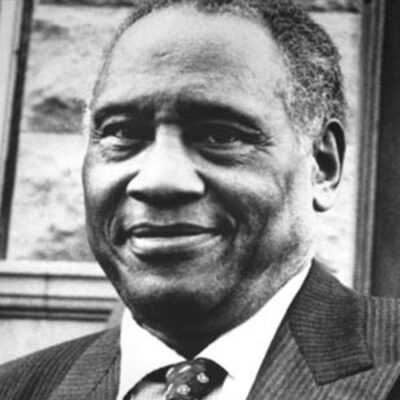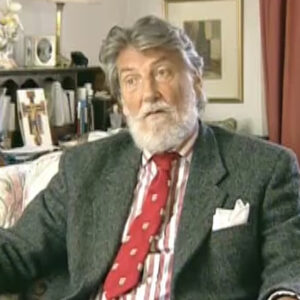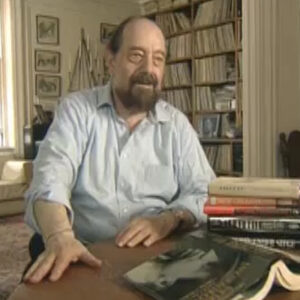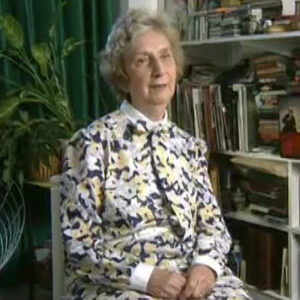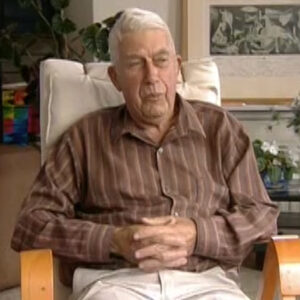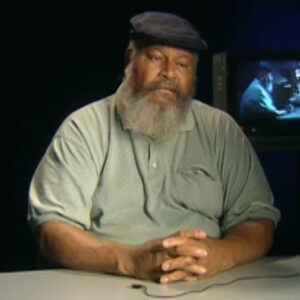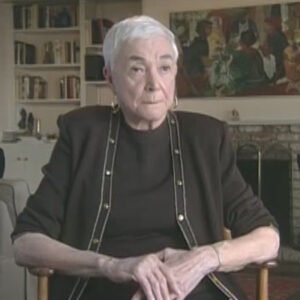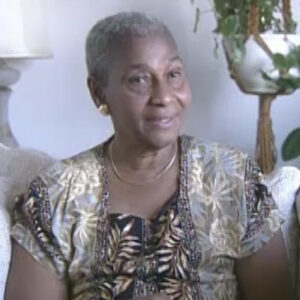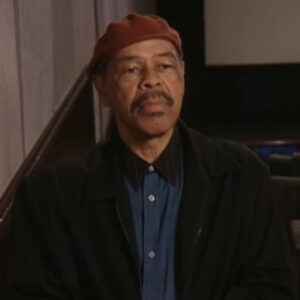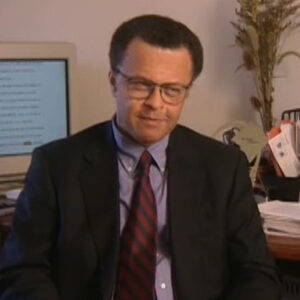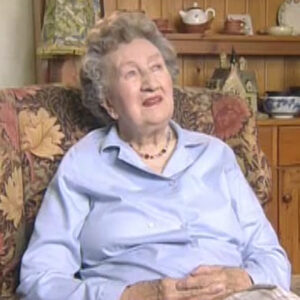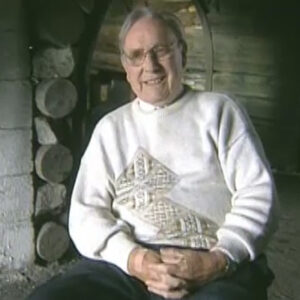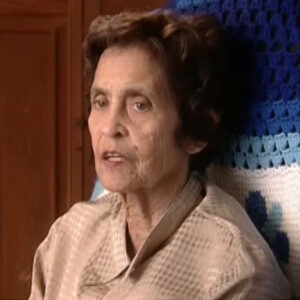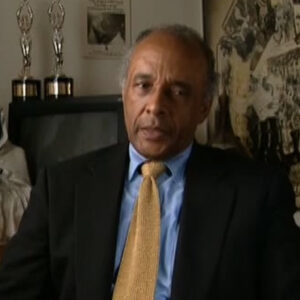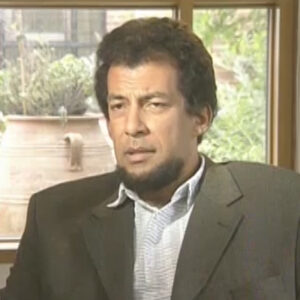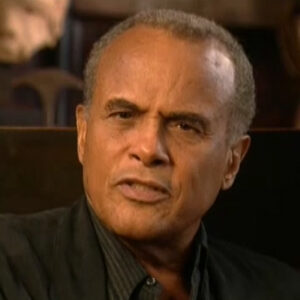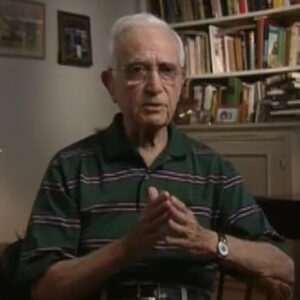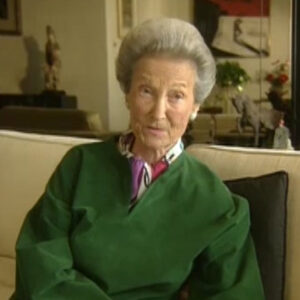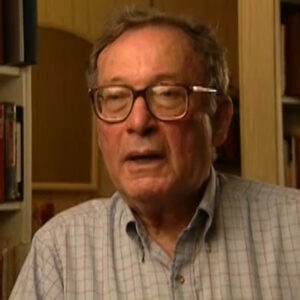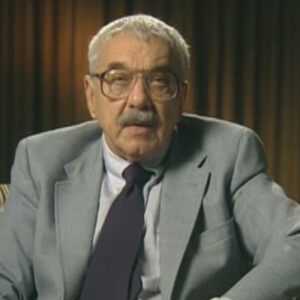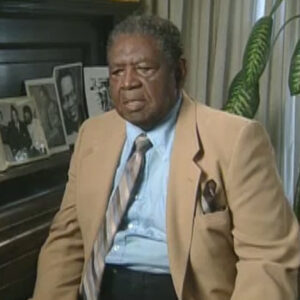Speaker The conditions of the miners in South Wales in particular, but in Britain generally were desperate for the miners from 1926 onwards as the great struggle of the miners general strike and the lockout and the enormous defeat meant that the union was more or less broken so that the wages were reduced by 20 percent. The hours were lengthened and there was a mass immigration with lost a quarter of a million people in this period, mainly into southern England. And so the for the long period, from 1926 right down to the early 30s, there was resistance, but resistance was piecemeal, localized and for the most part, rebellious. And it was not a concerted scientific organized resistance.
Speaker Was the what was that march from Selma to London? Was that part of the resistance?
Speaker The marches from South Wales were very important and rebuilding morale and telling the world of the desperate plight of the miners in South Wales. And it was one in 1927 28 and then the ones almost every year, right throughout the early 1930s. And looking back now, they were extremely important at the time. They seemed isolated and rather innocuous events, sort of a plaintive plea, really, of a defeated people. But looking back, it was very important in rebuilding morale and telling the world what was happening.
Speaker Now, this might be a long jump, but from that period to the of a cable conference concert.
Speaker For the things that happened back then that sort of resulted in the connections and I believe that what happened in the 30s and the very special relationship that was built up between Paul Robeson and the mining community in South Wales was extremely important. If you are to really understand what happened in the 1950s, Paul Robeson did many things. But one of the things he did for the mining community in South Wales was to identify himself as a world artist, a world the person on the world stage in every sense with the plight of the mining community in South Wales. And the best example, of course, of that is Proud Valley, where he helps to tell the story.
Speaker It’s a little bit like in a more political sense, it’s a little bit like how green is my valley in the sense that the American people and people all over the world had some sense of what was happening in this small country in Britain. And so Paul Robeson did an enormous service, a political service, not just a cultural service, but a political service to the mining community. And and they didn’t forget that.
Speaker OK, I’m going to jump around, speaks directly for you, which I did. Set up a.
Speaker Was it during the in the Korean consciousness that that Wilson had, my sense is that it came when he was first in London. Would you agree with that? Could you talk about that?
Speaker I believe that Paul Robeson’s political awakening did happen when he was in Britain. Most of the time he was in London. And London was very special. In many ways. It was the center of the British Empire. So you had future leaders of colonial anticolonial struggles there. And so he was meeting people like Kelly James, for example. It was also a place where you had many Welsh people, unemployed miners coming. And so it was it was a cosmopolitan melting pot, really, of ideas, progressive ideas, Left-Wing ideas. And it was also, in our parlance today, an open space for him. You know, he didn’t feel oppressed. I mean, clearly there was racism, but it was not the of the order that existed for him and his brothers and sisters in America.
Speaker Now, you know, many of our viewers on that will really not know that Wales has this kind of this large influence in progressive area. Could you talk about what what what progressive vibes, so to speak? Wilson would have experienced when he got here was a history of anti colonial struggle and a thought and.
Speaker Well, I think that what Paul Robeson admired and had a great sense of empathy with in terms of the South was miners especially, was there a great sense of struggling against injustice, their sense of internationalism and seeing the cultural struggle and the political struggle as one and music as part of the wider struggle. So when he visited Wales, it is said that he felt that he was amongst his own. And we certainly feel from then onwards that he is one of us, that we feel that he is, as is now is now called an honorary Welshman, that there was that coinciding of a of an emerging and developing political radicalism for both of them. And it was happening at the same time.
Speaker How could a country so far from the centre of, you know, this imperialistic empire be so international? And who were some of the influences that that gave that place?
Speaker Well, our history in in Wales in terms of the labour movement goes back a very long way. It goes back to the industrial revolution. It goes back to the chartists. And there are particular characteristics to it. It’s to do with the importance of self education, workers, education. And that was very, very powerful in some ways, especially in the period that when Paul Robeson visited.
Speaker Secondly, there was a very strong internationalist ethos that that has its roots, both in Christianity and in Marxism, that there were many missionaries that went from Wales all over the world. And many of the hymns that we sang have an international flavor to them. The children’s hymns that I learnt as a child that my parents put a kind of a socialist gloss on them. No missionaries. I have a particular role and not a very progressive one, but we perceived them as being progressive.
Speaker So there’s all of that. There’s all of that legacy, really, which is very powerful. And the very fact that music and the Welsh language was enlisted in the wider struggle was extremely important. This whole this grand pavilion, for example, is the best expression of that in that it is here that the main Welsh miners cultural event is centred the miners. They said it is the only event still today which actually has its origins, its roots in the trade union movement. And for the trade union to actually embrace wider cultural aspirations is quite unusual, really, certainly in Britain.
Speaker What are your memories of that great transatlantic concert?
Speaker Well, there’s still the memories I have of that concert are still very powerful for me.
Speaker I was brought up in a household where my father was a miner activist in the miners union. I was a member of the Communist Party, had been very closely identified with the campaign for Paul Robeson to get his passport back. And the campaign in those days, I think was called that Paul Robeson sing. And that started in the. 50S and the miners union in South Wales sent him invitations every year to come to this concert hall and of course, he couldn’t come because he didn’t have his passport. So that was the background. And the Daily Worker at the time was always having reports on the campaign worldwide. So there was a very high level of understanding in my child’s sort of experience of the importance of Paul Robeson at the time, but also how he identified himself with us in the 30s and 40s on that particular occasion in 1957, the idea of a transatlantic concert, I believe, had come from conferences on that Paul Robeson singing in London and elsewhere. And my father was among the delegates who brought the idea back to the union, and they then ran with it and had the idea to link up to the cultural festival to see the miners Eisteddfod. And I was sitting just here in this row with my mother. My father was behind the scenes on the stage and so on. And it was a long period of waiting and anticipation. And I suspect that many of us still didn’t believe that it would happen because the technology was so new. The cable had just been laid earlier in the year. So it was unknown. People didn’t ring America in those days. You know, people wrote letters. I guess it was it was a novelty. It was a big political occasion. It is very special. And over time, interestingly enough, it has seemed to grow in importance.
Speaker But two things I want you to mention the warm up act.
Speaker I think we waited a long time for the moment to arrive of the actual link and Paul’s voice coming over to us. And in the period before it happened, we had a master of ceremonies, a comedian, actually, David Reynolds. Lewis was from my valley and he was telling jokes and in a sort of traditional way of television today. And in those days, you were just being warmed up to get the audience really geared up to it, you know, and most people thoroughly enjoyed it. But there were one or two kind of very serious political or of people who thought that it was rather not in keeping with the occasion.
Speaker Let me ask you a broader question.
Speaker Um, in the States, one of the, um, one of within the black community, there were there were there were claims that essentially Robeson was used by the left. The fact that he was such a and he was black and an icon, that in fact, it’s not that he was used unwillingly, but it was a symbol rather than substance.
Speaker Do you think that was there was any of that here, perhaps through his very special people talk of him as being exploited by the left? We in Wales would describe it very differently. We would say that he was of the left. He was the left. He was the best expression of the left in the sense that he didn’t simply parrot slogans that he put them in the more humane and human context you related to people. But he also connected up with wider movements, the anticolonial movement, the cultural movement. And that’s how we perceived our politics then and hopefully now in a much broader holistic sense. And so he was the best expression of the left. He was, for many of us, the personification of the left.
Speaker I wanted to clear up that really that’s something that I think Americans are going to have to deal with. Yeah. OK, so now what do you think is ultimately in the long run?
Speaker But what do you think the legacy is here? Do you think that he has been forgotten, sort of, or is he still sort of, you know, partially a hero icon?
Speaker What do you think the legacy of Paul Robeson for Wales is very profound. It’s complex. The more we think about it as we arrive, know in the centenary of his birth, the more we realize how important he is in the 20th century for the whole world. He was a man that recognized and valued his own roots. He always said that, you know, that don’t forget your own roots. So Christianity was important to him. The struggles of the labor movement were important to him, but also the universal universality of certain values about dignity and the importance of people to live abundant, dignified lives. We can connect up with all of that. We have a pride in our own nationality, and that’s important to respect. But also we have brothers and sisters all over the world. And so there wasn’t that narrowness about his outlook. And in many, many ways, it mirrors the best and most progressive values that we have in Wales, which are for the most part rooted in the labor movement, in internationalist values and also in most progressive aspects of Christianity.
Speaker I have a question to got it. OK, that’s good.
Speaker Yeah, yeah, you need to say something about the following year, the year after the transatlantic link, Paul actually arrived and I was actually sitting in the front row of the audience, know his arrival in many ways was a sort of a climax, but it’s also an anticlimax.
Speaker It was by no means as profound politically as 1957 because we were actually now breaching the Cold War and speaking fifty seven. We were actually preventing the American government saying that corruption cannot travel that had been defeated. And in many ways there was no purpose in preventing him to travel. That was the very special occasion of 1958, was that not only did he visit. No, the miners as to in the miners, had played such a central role in campaigning for him. But he was now visiting the whole of Wales and the National Cultural Festival invited him to. And that was in a night in Bevan’s hometown of Abu Vale and a night in. Bhavin, of course, was the founder of the National Health Service, which is celebrating its fiftieth anniversary this year. And to see those two men alongside each other was very, very special. Bavand personified the best in Wales and and Paul Robeson personified the best in America, really. And they were close friends and they had been friends since the 1930s. And Beven had been very much identified as a miners sponsored MP in the the robes and cause really in the 1950s. So when he came, it was a kind of a culmination. It was the high point, really a high watermark, really, of political radicalism universally for us.
Speaker I two and the one you hear during the first concert, what was the emotional toll?
Speaker I mean, was it a show?
Speaker Was it a a, you know, pop event, sort of like Elvis or something? Or was it I mean, I heard the tape at the end when they were singing. I mean, it actually really sounds, you know, profoundly emotional.
Speaker Was it really that I mean, the people really get into whether it was a very, very emotional occasion in 1957. It was a one off, really. I mean, one could never repeat that kind of occasion. It was very difficult to to describe the occasion.
Speaker It was slightly almost evangelical at one level, but it was also sober at another level that people are very, very moved by it because all the previous years of connection with him going back to the late 20s and 30s came flooding back, obviously.
Speaker But there was also a profound sense that a great deal more had to be done. This man had been incarcerated in his own country and he was still there. You know, we could feel that that moment that he was liberated because his voice was with us. But there was also that terrible sense of injustice. And I say this now is 11 year old child and it’s difficult to disentangle the emotions and the and the personal feelings. But I really did. I did did feel then and I feel now that it was a moment in time, but much more needed to be done still politically to win his freedom.
Speaker Let me ask you this.
Speaker Do you have a long history with this father and also the politics pretty much in line with that critique, if I may? What do you think he could have done better? What do you think? You know, I mean, it’s hard, right? But give me an idea of some things that that if you had a chance to say to him, say, look, you could have done this, maybe this wasn’t right.
Speaker You know, just in hindsight now, do you think it’s very difficult to make a critical judgment of Paul Robeson because he was such a big man intellectually on the world stage? Strategically, I think he made all the right moves. He knew that the real strength for him internationally was the labour movement. And certainly it was in many of these critical moments in the United States. Secondly, we also knew that he could never, ever, never would wish to disassociate himself from the emerging movement, black movement in the United States. And that was equally important to it. And he never, ever publicly distanced himself from either of those. Those are the two pillars. Those are the two kind of reference points for him, really, the movement that sort of preceded the civil rights movement that wasn’t really a movement as such. The National Association for the Advancement of Colored Peoples was very important to him. And he and he, and especially Dr. Dubois, was a kind of a great mentor for him. So not at not being an American and not being black. It’s very difficult for me to actually say what he did this wrong or he did that wrong. We have to say that there are some people in history that are not necessarily beyond criticism, but they are such giants in their time. And they only was, to use a cliche, he was, of course, the forerunner. He was a man that had enormous intellectual and physical courage without a civil rights movement to embrace him, you know, and so those men and women that followed him did so as a result of his sacrifice.
Speaker But what about his stand with Russia, for example, which would ultimately prove to be, you know, the linchpin of the campaign against him in the states? And that’s why this boycott as well.
Speaker And also he just didn’t back down even when some other people who you know who I to point out.
Speaker So do you think that there are two things to be said about his relationship with Russia, the Soviet Union and the influence that it had upon him, which was profound? Firstly, one can never, ever deny this the importance of the Soviet Union in the anticolonial struggle. And that is very, very important to understand and really that he felt at home there because of the central role that it played and was about to play in that struggle. And anyone that actually tries to make a judgment of that must try to put themselves in the position of a black man in America, a country that was ostensibly democratic but was denying the most basic human rights to a third or a quarter of its population. That’s the first thing. The second thing is that he knew full well what was happening, as I understand it, in terms of the purges in the south in the late 30s. But he had to make a judgment and he made this judgment. And I respect the judgment that he made that was he going to be more useful in making a stand against all of that publicly or fighting privately against it? And he asked, as I understand, many of his close friends who were critical of the Soviet Union like syllogisms, for example, what is the what is the thing that what is the best thing that I can do?
Speaker And all the advice that he had was that you’re better off standing alongside the Soviet Union and defending it publicly and fighting privately against what what you can do, because I think that he would have neutralized himself if he had come out against. But there were moments, of course, when he did speak out against anti Semitism in the post-war period. So those were difficult personal judgments that he had to make. And looking back with hindsight, he made the right judgments.
Speaker OK. OK, that’s the clearest was one that I’ve had problems conceptualizing is was was Paul Robeson a rock and roll hall of his time?
Speaker In other words, was he like a pop star or was he sort of an intellectual, you know, cultural figure?
Speaker Paul Robeson as a singer had an enormous appeal across generations. Really young people like him singing political people liked him singing. All the people liked him singing from Negro spirituals to kind of political ballads like Joe Hill and so on. His appeal, therefore, was virtually classless. That was the interesting thing for our household. Of course, he was a political hero. You know, the very fact that he was a great singer was as important, I suppose. When would this is the stereotype of Welsh families? I suppose that music is very important. Singing is very important.
Speaker But to have somebody as well who had a radical political voice that mirrored very often your internationalist and socialist aspirations was everything then, you know. And so in that sense, Robeson was a remarkable man. To have a voice like that was one thing. And as his son would always say, you know, in America and maybe even in Britain, a black man can sing and dance on stage. But for him to speak as well and to have radical political views, that was something else. But for radical people like miners, that was wonderful. You know, to have both was just unbelievable.
Speaker Yeah, just a little bit of exposure to the bells from the choir.
Speaker And the role of music here is as strong as the world of music and black lives. And I’m sure that’s what Paul picked up on.
Speaker I believe that that occasion when Paul Robeson sang with the Comeback Choir in the Royal Festival Hall for the Movement for Colonial Freedom, I was there as well. And it was the coming together of everything that was Balestrieri. It was an immediate struggle. Paul Robeson was giving himself once again to the immediate political struggle worldwide, and it was still fairly early in the liberation movement 1960. It was not universally accepted, even within the wider labour movement and on the right to the labour movement. The anticolonial struggle was still a bit of a new phenomenon, really. And really the turning point was that you’re actually the Sharpeville massacre in South Africa. But what we forget was that there was a legacy. There was that whole long period of identification of the British labour movement with the anticolonial struggle going back to the 30s. And the south was miners were part of that. So when Robeson sang with the choir for the Movement for Colonial Freedom, that wasn’t just something that had happened there that he had facilitated or whether it facilitated. There’d been a long international struggle prior to that, you know.
Speaker Oh, OK. OK, thank you.
Speaker Uh, yeah. Uh, could you talk about your, uh, any personal comments your father may have made about Paul?
Speaker My father was very emotional about Paul Robeson, and, uh, people used to say he said that he would say he’s black and my father said, Do you know I loved his color?
Speaker Right.
Speaker And people would be taken aback by that, you know, but that was the emotional way which my father expressed himself.
Speaker So the important thing about Paul Robeson for us was that we have a long and proud history. But somebody as famous as Paul Robeson to be identifying with that history, but also being part of it was something rather special. Now, that sounds may sound a bit chauvinistic, but that’s how we are. You know that there is that enormous pride in our own struggles and even those struggles, which are also international struggles like the men who fought in Spain. But for Paul Robeson to also be part of that is something quite unique to us. And we’re very proud of that. And no one can take that away from us. And I suppose what was what was so special for my father and when Paul had that long illness, then throughout the 60s, my father was constantly writing to him and inviting him as the general secretary of the U.N. in South Wales. And only recently I discovered that he had sent a small miner’s lamp. And Paul Junior told me that that he greatly valued that lamp. And when my father retired in 1976, January 1976, the union gave him and my mother tickets to go to Canada because my father had a long links with another union which had been closely identified with Paul Robeson, the international maintenance workers. And when my father was there as a fraternal international delegate at the beginning of 1958, he was given a copy of Paul Robeson. Here I stand. And when Paul arrived here in 1958, I gave Paul Robeson that book to autograph. And on the one side was the autograph of the leadership of the Bill Longridge. And all these people were leaders of the mine workers. And so there were those kinds of transatlantic links that were still powerful. But in January 1976, my father was going to Canada, but he was going to cross the border and go down to see Paul, even though he knew that that he was a recluse.
Speaker But my father wouldn’t would have just turned up to see. But the week my father retired, Paul died.
Speaker I think that in Peru, since political development in the 1930s, clearly being in London, meeting leaders of the anticolonial struggle, meeting Welsh miners in London and subsequently in South Wales, that was important. Going to the Soviet Union shortly afterwards was very important. I suppose that Spain for him and for everyone that went to Spain was exceptional, you know, in the sense that you were people who were actually dying for the cause of the Hauner when Robson’s close friends was president of the South. As miners in that period said that in the struggle early on, we were expected to lose our jobs, we were going to be victimized. The struggle intensifies and we’d expected to go to jail. Now we’re expecting you to die for the cause. And it was that kind of special, terrible kind of expectation in that antifascist struggle that Paul Robeson identified with. And that’s why he came to South Wales in November of 1938 to multination to sing and speak because he said these fellows, as he described these fellows were my friends and the artist must choose. And I had no option. I am with them. You know, I am with the antifascist struggle.
Speaker OK, is there anything else you want to say that you thought he had you said no.
Speaker Is there anything he could, you know, any reaction from? Oh yeah. Uh, yeah.
Speaker I mean, as a as a as a political cultural artifact, how do you think it ranks?
Speaker Well, the significance of Proud Valley in British filmmaking is this, that it was the first time ever in Britain and certainly in the States that you had a black man playing a lead role with a major speaking part that is considered by film historians to be critically important now and for it to be made in Wales about a subject that was, again, not portrayed. You didn’t have films about miners and certainly miners were heroes or martyrs, you know, so it was doubly powerful. He was a black man and you were Welsh miners and a film was being made about them in a in an interesting way. It parallels how Green was my valley. But for the left, you know, there’s a progressive cause, the political line and how green is my valley is appalling. You know, it’s it sends all the wrong messages, but probably sends all the right messages, all the left messages.
Speaker And we did you what was your reaction when you saw it? Was it was it as emotional as the concert?
Speaker No, not at all. Really. Sorry, it’s not a proud valley was for me, not very significant because, you know, I wasn’t born when it was made. I didn’t see it until nineteen seventy four, something like that. It was a period piece really. And I have to say I was slightly jaundiced by it, you know, that I didn’t really fully understand it in the context of its time and how important it was. And it’s only after that that I’ve thought about its contemporary impact and its long term political significance.
Speaker Yeah, it’s quite amazing, actually, if you look at it from in hindsight.
Speaker Hmm. OK, uh, just on a personal note.
Speaker What was his reaction when I heard. Yeah, well, we’ve got the demander, you know.
Speaker Well, when Paul Robeson died, it was January 1976, and my father told me and it was. It was more to do with the profound sadness for my father in the sense that he had looked forward to going to see Paul and for that to happen in the week that he was retiring, you know, that that was a strange thing for me to say that. But my father had so admired, worshipped is not the right word, but admired and identified with Paul Robeson all his adult life, really. And he had not seen him since nineteen sixty six years. And my father was not a great lover of the American way of life, so to speak. And so you would not have been going out of his way to go to the States. He did try to cross the border in 58, but because he when he was in Canada, but because he was a card carrying member of the British Communist Party, he wasn’t allowed to cross over. He couldn’t get a visa. And you’d visited in 1970, I think also with the intention of going to see Paul in 1970 but couldn’t get across. So there was that emotion, but also because Paul had been not in the public eye, you know, for nearly 16 years for us in Britain. Anyway, that one got the sense that because he’d been so ill for so long, that there was that kind of expectation that you would he was going to die sometime, you know. But in many ways, for us, we had no sense of how well, how well he was and that that in many ways as a public figure for us. He had disappeared, you know, in 1960, 61.
Speaker Did your father say anything to you, anything of note when you talked to him about what he thought about the death of same anything that you remember that was significant, which is not really, you know? No, I just want.
Speaker Well, no. Well, yes. Yeah. I should say that, um, as soon as soon as Paul Robeson died, it was typical of the mind isn’t typical of my father that the first thing they think of is to organize a memorial concert and a memorial concert was organized here. And my father organized that. And I think it was the last thing that he did as a business leader.
Speaker Uh.
Speaker I was going to ask you something before you go, OK, there’s something that’s off the record that I wish.
Speaker Well, just tell me how somebody let’s OK, how did he end up in what and why would people come to the which seems to be out of the loop, you know, the metropolitan area of London.
Speaker CNN’s James came to south for the same kinds of reasons as Paul Robeson came, that there was this understanding, recognition, appreciation that the South was miners were in the forefront of struggles in Britain and internationally. But as as the man who actually brought Paul Robeson onto the stage in 1950, 58 died on Evans, fine intellectual, very fine Marxist thinker, miners leader and organic intellectual die, Don Evans said that whatever dungeon you’re in, in the world, you can be guaranteed the voice of the South who as miners will be raised in your support. It to explain the kind of sense of internationalism that the South was miners had now in many ways was rooted in the 30s in the period the Spanish Civil War and the numbers of miners that went out for the antifascist cause. So it was not unusual. It was not unusual, Emma Goldman came to South Wales, Emma Goldman trod the same path in a way they were very often dissident left wingers. Emma Goldman being an anarchist, you know, and Kelly James came to the same communities, Britain, Fahri Outsiderness, CNR James went there and the government there, Sciarra James stayed in the house in which I live and the name of the house and it’s still the name of the house is Camden, named after Camden, New Jersey, because the left wing school schoolteacher that lived in our house was a great admirer of Walt Whitman.

